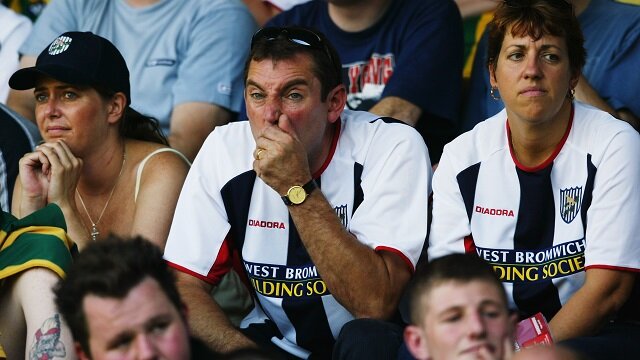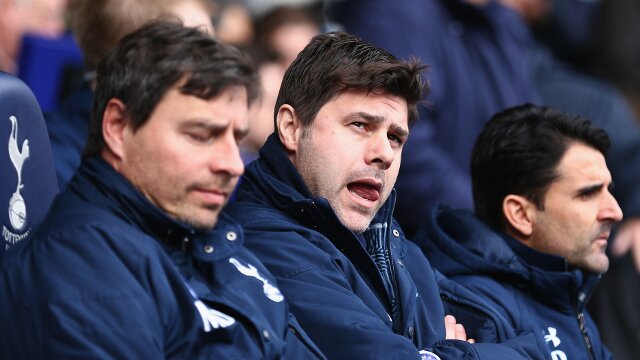Disaster At Parma FC Could Have Been Avoided
The Italian Serie A is one of the biggest leagues in the world of soccer. Teams like Juventus, Inter Milan, AC Milan and AS Roma shine on some of the biggest stages in the sports.
To say life is different at the bottom of the Serie A table would be an understatement. Forbes estimated the value of Juventus to be approximately $850 million in 2014, a stark comparison to Parma FC, who cannot afford to play a game or pay their players wages due to a “lack of funds.” However, there is a solution.
In all sports, there is a discrepancy between the best teams and the smaller organizations. It is unrealistic to suggest that the Italian Serie A should implement a program that forces teams to split revenue evenly. However, there must be a way to share revenue to prevent situations like the one in progress at Parma.
The NFL utilizes a revenue sharing model in which all of the revenue generated by the league is divided evenly among the 32 NFL teams. For 2013, $6 billion in revenue was generated in the NFL and each team received approximately $187.7 million. This revenue is not comparable to the Italian Serie A and while the structure of the league is not exactly the same, a similar model would help.
Teams like Juventus receive high-profile sponsorships, television contracts and financial compensation for competing in competitions like the UEFA Champions League. However, part of the incentive to perform well in domestic leagues is the financial rewards associated with the UEFA Champions League and Europa League. Juventus has built a legacy in the sport and should reap the financial benefits of this achievement.
However, if a cash cow like Juventus, along with all other teams in the league were forced to contribute to a revenue sharing model, disasters like postponed games could be avoided.
A key to this model would be ensuring teams near the bottom of the table remain motivated to perform well, qualify for UEFA tournaments and build a bigger club. However, teams in the Serie A are not competing on a level playing field. Due to the legacy of the major clubs and their large fan bases, Italy’s biggest clubs receive extensive television coverage and lucrative contracts from television companies.
Smaller clubs do not receive this benefit and only receive broadcasting opportunities when they face the biggest clubs in their league.
A model must be developed to rectify the issue. The key to this process will be to keep the incentive for teams to grow and improve, without the threat of closing their doors.
Premier League Teams Still Struggling In Europe
A terrible week of results ended with losses by all four Barclays Premier League teams competing in Champions League and Europa League. Read More
5 Bold Predictions For Liverpool vs. Man City
Manchester City have not been successful in trips to Anfield, and a resurgent Liverpool team will look to keep the streak going in Premier League Week 27. Read More
Brutal Schedule Provides Stern Test For Liverpool
Competing in the UEFA Europa League adds mid-week games to an already busy schedule. With opponents like Southampton and Manchester City, the task gets increasingly difficult. Read More
Fiorentina First Leg Was A Chance Missed For Spurs
Tottenham have a tough Europa League game against Fiorentina on Thursday, amid an even tougher upcoming packed schedule. Things could have been easier had the Spurs taken their big chance a week ago. Read More
Dour Arsenal Succomb To The Hype In Loss To Monaco
Arsenal had a favorable tie in the Champions League second round, but the Gunners bought into the hype too much pregame. Their performance now means an exit is now likely in the second leg. Read More
Inconsistent Referees Should Use Instant Replay
Referees never receive praise, but their job is incredibly difficult and there are tools available to make their lives easier. Read More
Bayer Leverkusen vs. Atletico First Leg Preview
Bayer Leverkusen will be a heavy underdog at home in the 2015 Champions League Round of 16 match against Atletico Madrid. This one could be over before the return leg. Read More
Arsenal vs. Monaco First Leg: Game Preview
AS Monaco will be looking to use dominating defense in their 2015 Champions League Round of 16 match with Arsenal to force a low-scoring affair. Read More
Home Leg First Is Advantage For Arsenal vs. Monaco
Arsenal play AS Monaco at the Emirates Stadium in the Champions League second round on Wednesday, and for once, the Gunners should be happy to play the first leg at home instead of the reverse order. Read More
Man City Should Take Heart From Barcelona Defeat
Manchester City may have lost the first leg of their Champions League tie with Barcelona, but there were still causes for optimism for the EPL champions. Read More
Everton Must Find A Strike Partner For Lukaku
Romelu Lukaku has come in for some criticism at Everton this season, but a strike partner for the Belgian could be the answer to helping the fortunes of both Lukaku and Everton as a whole. Read More
Manchester City Must Keep It Close Without Toure
Manchester City have struggled without Yaya Toure in the lineup. In the first leg against Barcelona, Manchester City must keep it close and give themselves a chance. Read More









 @adamdclifton
@adamdclifton 















